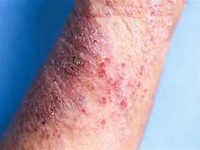
LACTOSE INTOLERANCE
FOODS THAT HARM
FOODS THAT HEAL
FOODS TO LIMIT
WHO’S AFFECTED
Lactose intolerance, the inability to digest milk sugar, is very common
Lactose is the natural sugar found in milk and milk products
If you don’t have enough enzymes to break down the lactose in the food you eat, you will experience a variety of unpleasant symptoms such as gas, bloating, diarrhea, and cramps
Lactose intolerance should not be confused with milk allergy, which is hypersensitivity to the proteins in dairy products
If you are allergic to milk, consuming a lactose-reduced product will not prevent a reaction
Nutrition Connection
You can control symptoms of lactose intolerance by choosing a diet that limits dairy productsHere are general guidelines: Read labels carefully
Lactose is found in dairy products, including milk, yogurt, and cheese
Such dairy products can be an ingredient or component of various food products such as cookies, breads, processed meats, hot dogs, some artificial sweeteners, and even some medications
When reading labels, look for milk, milk solids, cream, whey, cheese flavors, curds, and nonfat milk powder
Eat lactose-reduced products
For people with more severe intolerance who still want dairy products, grocery stores sell lactose-free dairy products
70% of people of African and Asian descent are partly or entirely lactose intolerant after 4 years of age
Stick to low-lactose foods
Most lactose-intolerant people can consume cultured dairy products such as yogurt because the bacteria used in fermentation use up most of the lactose for fuel
Others include hard cheeses, such as cheddar, edam, and gouda
Try slowly adding milk to your diet
Most lactose-intolerant people can consume some milk without much discomfort
Try ¼ cup of milk and gradually increase the amount
You’ll find, in time, your tolerance will increase
Additionally, drink milk with meals, never on an empty stomach
Get calcium from other sources
If you are very intolerant, other calcium-rich foods include broccoli, fortified and enriched breads and juices, canned salmon, pinto beans, rhubarb, and spinach
Eat foods rich in vitamin D
Since D is also needed for strong bones, eat eggs, salmon, and yogurt if you can’t consume foods rich in calcium, since both nutrients are needed for strong bones
Talk to your doctor about adding a supplement
Beyond the Diet
Although there is no cure for lactose intolerance, there are ways you can still enjoy dairy products without suffering the symptomsHere are some recommendations: Take enzymes
Pharmacies carry enzyme drops that can be added to milk and enzyme tablets that can be taken before eating dishes containing dairy products, to help your body break down lactose
Consider probiotics
Probiotics are living organisms found in foods such as yogurt and kefir
You can also look for probiotics in supplement form
Avoid lactose filler
If you’re severely lactose intolerant, avoid medications containing a lactose filler
Ask your doctor if substitute drugs are available
Importance of well balance diet




